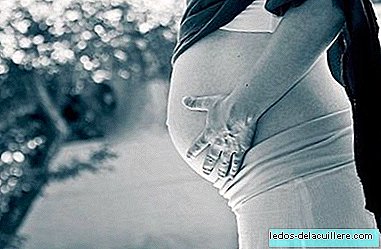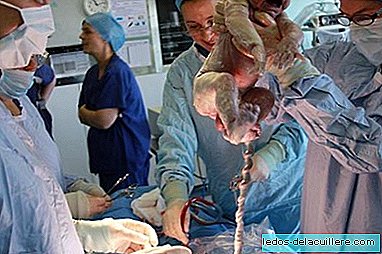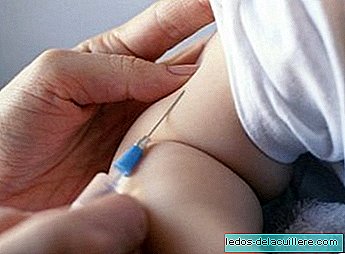
The World Health Organization considers that the lack of iodine in the body It is the main avoidable cause in the world of brain injury of the child during pregnancy and the infant, as well as problems in development and growth during childhood.
Iodine is an essential element for the development and growth of the child and for regulating such important functions as heart rate or body temperature. Iodine deficiency can cause hypothyroidism, whose symptoms include extreme fatigue, mental retardation, depression, weight gain, decrease in basal temperature (hypothermia) ...
In pregnant women it can cause abortions and fetal deformities, as well as subsequent mental retardation in children. Cretinism and goiter are two diseases caused by severe iodine deficiency.
For all this, it is important that the pregnant woman, during breastfeeding and children receive enough iodine.
How to prevent iodine deficiency? In a simple and effective way, by providing enough iodine to the body through food.
We already commented that iodine is among the nutrition recommendations during pregnancy. The iodine that the fetus receives is the one that the future mother contributes fundamentally through what she eats, although, as with folic acid, the amount ingested may be insufficient, so gynecologists generally recommend a pharmacological supplement.
Naturally we can increase iodine consumption thanks to the use of iodized salt at meals, although an excess of salt is not good either. The equivalent of one teaspoon of this type of salt would suffice, which we can find properly labeled in any supermarket, to cover the daily needs of iodine.
Sea fish and shellfish also contribute significant amounts of iodine to the body, so it is important to introduce them into the family's diet on a regular basis, as well as generalize their use in school canteens.
The iodine that the woman takes also passes the baby through breastfeeding, so that in the first months of the child, with exclusive breastfeeding, the mother has to take care of the intake of foods rich in iodine. In addition, the AEPed notes that the iodine supplement for a nursing woman It is the same as during pregnancy and should be maintained throughout breastfeeding.
Once the complementary feeding begins, the children will begin to receive this element through other foods next to the breast milk.
In short, in preparation for a healthy pregnancy, during pregnancy, lactation and in childhood the amount of iodine that reaches the body must be sufficient to prevent development problems.












